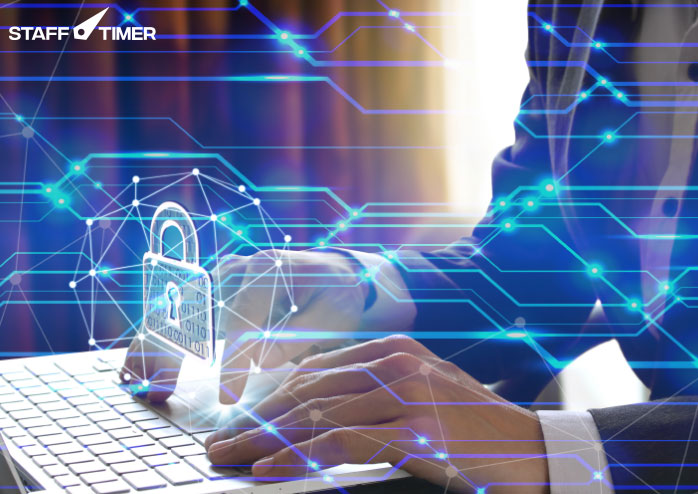Employee Monitoring Software: How it Benefits Data Privacy
Nowadays, data is considered as a more valuable resource than oil. In this new digital economy, data and what you extract from it is very similar to oil a century or so ago. It represents a huge untapped asset that – depending on how you extract and use it – can bring lots of benefits. When trying to extract value from raw material, you need to first refine it into a commodity. For data, the value is in the knowledge extracted.
Now that we have established the importance of data, those who are in possession of it need to guard it well. There have been lots of data breaches over the years. Unsurprisingly, one of the leading causes behind these breaches has been insider threats. According to Insider Threat Report 2018, almost 90% of companies are vulnerable to insider attacks.
So what should companies do? One way to increase data privacy and decrease insider threats is by monitoring your employees. It’s not the most attractive idea but it gets the job done. In this article, we’re going to discuss how employers can use employee monitoring and some other methods to increase data privacy.
Employee Monitoring
Employee monitoring is getting increasingly important in this day and age. Why you may ask? Well, it mostly has to do with our decreasing attention spans.
It’s very easy for us to get distracted. The average human span is now just eight seconds. Mobile phones and social media apps are one of our main distractions. That’s not exactly surprising. We are always getting the urge to check on our mobile phones. This is quickly becoming a major problem for employers as employee productivity is decreasing day-by-day.
Recent surveys by staffing firms have been able to back this point. Those surveys have found that employees spend at least 56 minutes per day on their phones, using it for personal business. That’s nearly an hour of work wasted! Daily!
To increase productivity, employers are considering employee monitoring apps. Some of the ways through which employees can be held accountable for their work:
-
- Defining clear policies. Business owners need to write down their office policies. They should explain these policies in a clear and precise manner. Include them in a handbook or guide and make sure that all the employees have carefully read through them. If an employee doesn’t follow your rules then you need to immediately take disciplinary action. Also, avoid favoritism and ensure that these policies are being equally implemented on all employees.
- Choosing an employee time tracking software. Make a list of features that you would like in an employee monitoring software and then search the market. Look into apps, like Staff Timer app, that can improve business operations by providing real-time monitoring and automatic time capture. These apps can keep track of daily employee progression and increase transparency and productivity.
-
- Blocking unproductive websites. The internet is a huge space filled with sites, like Facebook and Twitter, that can easily distract even the most productive of employees. Block these websites. If your employees tend to visit pages that have nothing to do with their job, gently remind them that they are on company hours.
-
- Use video surveillance. Video cameras are usually placed in the office in order to discourage or detect theft. But that’s not their only use at the workplace. Companies can also use them to monitor their employees and observe how productive they are throughout the day.
Data Privacy
No matter the size of a company, they can’t afford to ignore data privacy. Even huge companies like Facebook and Quora have been targets of data breaches in recent years. This means that small and mid-sized companies aren’t safe as well. According to the National Cyber Security Alliance, almost 60% of small businesses collapse within six months after a cyber attack.
Some of the most effective strategies regarding data privacy include:
-
- Identifying information flow. Businesses that know where their data is arriving from and where it’s headed to can identify vulnerable points. This lets them come up with informed decisions with regards to data privacy measures and policies.
-
- Banning mobile devices at work. This may upset some employees but is proven to increase productivity. Since mobile phones are small and not very noticeable, hostile insiders can easily use them to rob or launch attacks on sensitive data.
-
- Allowing only company laptops. Just like mobile devices, hostile insiders can also use their own laptops to rob or launch attacks on sensitive data. To guard against this threat, companies should ban personal laptops in workplaces.
-
- Applying encryption. Companies need to use encryption in every bit of data, end to end. From USBs to data transfer, encryption is a must for all businesses that are serious about data privacy.
-
- Use strong passwords for company laptops. Weak and short passwords are no good. Experienced hackers can easily break them. To protect your data, passwords should have at least 8 characters, 1 upper case, 1 lower case, 1 number, 1 special character, and contain no portion of the user name.
-
- Regularly update your operating systems and browsers. Hackers are always leveling up and learning to break into various software. Tech companies update their software to get rid of the weak spots that these hackers have found. So fill these holes in security by constantly updating your system.






